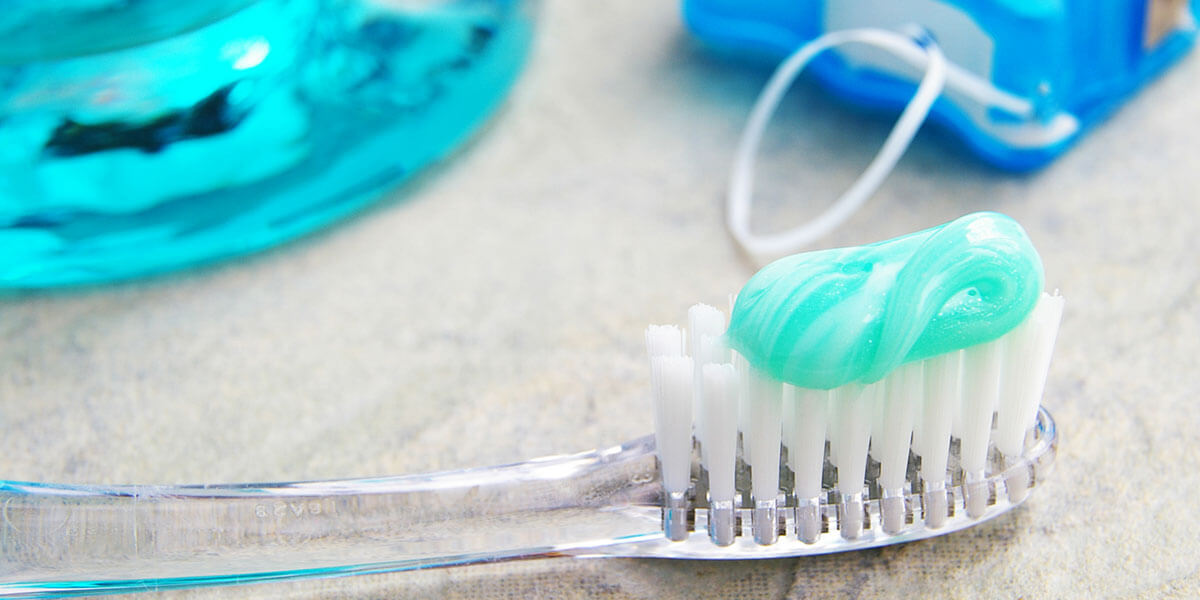Patient Instructions

General Guidelines for all procedures:
Avoid hard or sticky foods such as “hard tack” candies for a least 24 hours as chewing on these types of foods can loosen or damage a restoration. Never chew on ice. Carefully follow all guidelines provided by our office, and, most importantly, practice good oral hygiene. Additional instructions following various types of treatment are listed below. Please click on the below topics for detailed instructions. In the event of an emergency please call our office. If you are experiencing a serious or life threatening emergency, please call 911 or visit the nearest emergency room.
Following Tooth Preparation:
- Sensitivity and tenderness of the tooth and surrounding gums is common for the first day or two after a tooth has been prepared for a restoration. If the tenderness or sensitivity lasts longer than this, please contact our office.
- If anesthesia is used, avoid chewing, biting, and eating until the numbness wears off.
- The final restoration may be placed the same day that the tooth is prepared or may be placed during a separate appointment.
For Temporary Restorations:
- Eat softer foods, and avoid foods that are particularly crunchy, chewy, or hard.
- Carefully clean around the restoration, brushing and flossing daily. Be gentle when flossing, taking extra care not to loosen the temporary restoration. Slowly pulling the floss out by one end can help avoid putting too much pressure on the temporary.
- If the temporary restoration becomes loose or breaks, please call us immediately.
After Final Restoration Placement:
- Avoid chewing on hard, crunchy, or sticky foods for 24 hours in order to give time for the cement to fully bond.
- Mild sensitivity to hot or cold foods is not unusual and should dissipate after a few weeks. If sensitivity lasts more than six weeks, please let the office know.
Ongoing Care:
- Proper care of your restoration includes brushing your teeth after every meal and snack, and flossing at least once a day before bedtime.
- Rinsing your mouth with water or mouthwash will also help to remove any additional particles that may have been missed during brushing and flossing.
Please call our office if you are in pain or have any questions regarding your treatment.
- Do not eat or chew until any numbness from anesthesia has worn off. If you are supervising a child who has had treatment, make certain that they are not eating or chewing while numb. Please make sure they do not bite their lips or tongue as doing so can cause serious injury to their soft tissue.
- Avoid sticky, crunchy, or hard foods for 24 hours.
- Sensitivity to cold and heat, as well as any soreness, should not last more than a few days.
Please call our office if you experience pain or discomfort for more than a few days.
- Dentures and partials will often need several adjustments in order to fit comfortably.
- To help yourself adjust to your dentures you can practice reading aloud for a little while each day.
- Dentures should be removed overnight or for at least 6 hours a day to give your mouth and gums time to rest.
- At night you should remove your dentures and clean them. They should be stored in a clean container filled with denture cleaning solution.
- Food particles can become trapped under dentures causing inflammation or sore spots. Lightly brush the roof of your mouth, your tongue, and your gums after removing your dentures.
- You may have discomfort for a few days after receiving your final dentures or partials.
Ongoing Care:
- Brush your teeth and the surrounding tissues after every meal and snack and flossing at least once a day before bedtime. If you have full dentures, brushing the dentures daily is very important.
- Rinsing your mouth with water or mouthwash will help to remove any additional particles that may have been missed during brushing and flossing.
- Make sure to visit our office at least once a year to have your dentures or partial adjusted and checked by the doctor. Wearing ill-fitting dentures or partials without proper care and adjustment can cause bone loss in the jaw area and oral disease.
Please call our office if you are experiencing ongoing pain or discomfort or if you have any concerns regarding your denture or partial.
Following Bleaching:
- Teeth are more susceptible to staining for the first 48 hours following bleaching treatments. For the first 48 hours after whitening, it is best to avoid dark-colored foods or beverages that can stain your teeth. Any item that can stain your clothes can also stain your teeth.
- Avoid berries, cola or other dark sodas, red wine, coffee and tea, tobacco, and ketchup, soy or other dark sauces.
Using Your Custom Trays:
- Follow the instructions given by our office, placing the bleaching gel in the center of each tooth position on the tray so that the gel will rest against the anterior surface of the teeth once it is placed in your mouth.
- Wear trays for the recommended time.
- Rinse the mouth, and gently remove any gel remaining on your teeth with a soft bristle toothbrush.
- Clean the trays.
- Some pain, bleeding, swelling, and seeping are normal following oral surgery. Please do not try to view the site by pulling on your lip and do not probe the area with your tongue or fingers. If you experience excessive bleeding or discomfort after 48-72 hours, please call our office immediately.
- You can take ibuprofen or acetaminophen according to the instructions on the label or those provided by our office as needed.
- Swelling around the face, eyes, and surgical site is not uncommon and may become more noticeable two to three days following surgery. Applying a cold compress to the face near the implant site will help minimize swelling. If using an ice pack, please do not apply ice directly to your skin but place a cloth between the ice and your skin at all times. You may apply the cold compress for up to 20 minutes on and at least 20 minutes off as needed. After 36 hours the cold compress will have no further impact on swelling. After this period, the application of moist heat to the sides of the face can help reduce swelling.
- A warm salt water rinse, approximately ½ teaspoon in an eight ounce glass of water, three times a day can be helpful.
- Avoid brushing your teeth near the surgery site but brush and floss the rest of your mouth as instructed by our office.
- For 24 hours following your surgery, do not suck on a straw, brush, rinse, spit, or smoke.
- For the first 24 hours you may experience some cold and heat sensitivity. Avoid hot and spicy foods as well as carbonated and alcoholic beverages.
- Restrict your activities on the day of your surgery. Avoid excessive work or play, and resume normal activity the following day as tolerated.
- After the first day, gently rinse with a warm salt water rinse, approximately one-half teaspoon of salt in an eight ounce glass of water, three times a day.
- During the first few days after surgery restrict your diet to liquids and soft foods such as soups, yogurt, juice, and smoothies.
- Follow any other instructions provided by the office on your visit. Please take all medications as prescribed including your prescribed antibiotics to help prevent infection.
- If you have a denture that overlaps the implant site, please minimize the use of the denture following surgery to allow the site to heal. After the first week, you should be able to gradually increase the amount of time you can wear your denture.
- It is extremely important to keep your follow up appointment(s) so that we can monitor the healing process.
- If pain and swelling are increasing after a few days, please call our office right away.
Immediately following surgery, maintain pressure on the surgical area by biting down on the provided gauze pad or roll until the bleeding stops. A certain amount of bleeding is to be expected following a surgical procedure. Placing the gauze pad over the area and biting firmly will help prevent excessive bleeding. Replace the gauze as necessary until the bleeding stops.
For a few days following surgery, you may become dizzy when getting up. Sit up slowly, and give yourself a minute to adjust before getting up and walking.
Avoid vigorous activities for three to four days after surgery. You may go back to your normal routine as tolerated.
Please fill any prescriptions you have been given and take as directed. If you have been prescribed pain medication other than aspirin, Tylenol or ibuprofen (Advil or Motrin), do not drive, operate heavy equipment, work around machinery or tools, or engage in any other activity that may be unsafe when groggy, as your reflexes and judgment will be affected by the medication.
Antibiotics may be prescribed to help prevent infection. If you have been placed on antibiotics, take the medicine as directed.
Swelling and stiffness are to be expected the first 24 hours after surgery. Swelling around the face, eyes, and surgical site is not uncommon and may become more noticeable two to three days following surgery. Applying a cold compress to the face near the extraction site will help minimize swelling. If using an ice pack, please do not apply ice directly to your skin but place a cloth between the ice and your skin at all times. You may apply the cold compress for up to 20 minutes on and at least 20 minutes off as needed. After 36 hours the cold compress will have no further impact on swelling. After this period, the application of moist heat to the sides of the face can help reduce swelling.
For 24-48 hours following your surgery, do not suck on a straw, drink from a bottle, rinse, spit, or smoke. Avoid hot and spicy foods, carbonated and alcoholic beverages.
During the first few days after surgery, restrict your diet to liquids and soft foods such as soups, yogurt, juice, and smoothies.
Do not rinse, spit, or brush your teeth on the day of surgery. Resume brushing the day after surgery, avoiding surgical sites with the toothbrush.
After brushing, rinse gently with warm salt water (1/2 teaspoon of salt mixed with eight ounces of warm water). Start the salt water rinse the day after surgery and repeat 3 times a day for 7-10 days. This will help keep the surgical areas clean and will also help dissolve the sutures.
Please do not use the irrigating syringe for the first five days. After five days, fill the syringe with warm salt water and flush out the socket. This will flush out any food or debris.
If you are experiencing numbness of the lip, chin, or tongue, be aware that this is usually temporary in nature and normal feeling should return after a few days. Until then, please be cautious while eating and chewing in order to avoid accidentally biting your tongue, cheek or lip.
A dry socket can develop when blood clot gets dislodged prematurely from the walls of the tooth socket. Symptoms of a dry socket include throbbing pain at the surgical site, the ear, chin, adjacent teeth, and/or jaw. These symptoms indicate a dry socket when they occur three to four days following surgery and do not respond to pain medication.
Please call our office if you experience severe pain, excessive bleeding or swelling, or if you have any questions or concerns. If you are experiencing a serious or life threatening emergency, please call 911 or visit the nearest emergency room.
